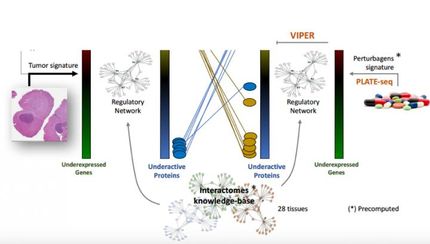Panitumumab Significantly Improves Progression-Free Survival in Phase 3 Randomized Metastatic Colorectal Cancer Study
First EGFr Inhibitor to Demonstrate Improvement in Progression-Free Survival as Monotherapy for Metastatic Colorectal Cancer
Amgen and Abgenix, Inc. announced that a pivotal Phase 3 study of panitumumab met the primary endpoint of improving progression-free survival in patients with metastatic colorectal cancer (mCRC) who had failed standard chemotherapy. In this randomized Phase 3 trial involving 463 patients, those who received panitumumab every two weeks showed a 46 percent decrease in tumor progression rate versus those who received best supportive care alone (p less than 0.000000001).
This result exceeded the pre-specified measure of progression-free survival that the trial was designed to demonstrate (i.e., a 33 percent decrease in tumor progression rate in patients receiving panitumumab versus those receiving best supportive care, as assessed by central radiology review). A secondary endpoint of objective response rate, as assessed by central radiology review, was also met. Analysis of overall patient survival in this study will occur 12 months after the last patient was randomized.
Per protocol, administration of panitumumab did not require administration of pre-medication or a loading dose, and the incidence of infusion reactions (of any severity) was low. An initial safety evaluation showed that the adverse events observed were consistent with previous clinical studies of panitumumab. The most common side effect was acneiform rash. Other side effects less commonly observed were fatigue, nausea and mild diarrhea. No human anti-human antibody (HAHA) or anti-panitumumab antibody formation was observed.
Complete analyses of data from this trial will be submitted for presentation at a medical meeting in 2006.
Other news from the department research and development

Get the life science industry in your inbox
By submitting this form you agree that LUMITOS AG will send you the newsletter(s) selected above by email. Your data will not be passed on to third parties. Your data will be stored and processed in accordance with our data protection regulations. LUMITOS may contact you by email for the purpose of advertising or market and opinion surveys. You can revoke your consent at any time without giving reasons to LUMITOS AG, Ernst-Augustin-Str. 2, 12489 Berlin, Germany or by e-mail at revoke@lumitos.com with effect for the future. In addition, each email contains a link to unsubscribe from the corresponding newsletter.
























































